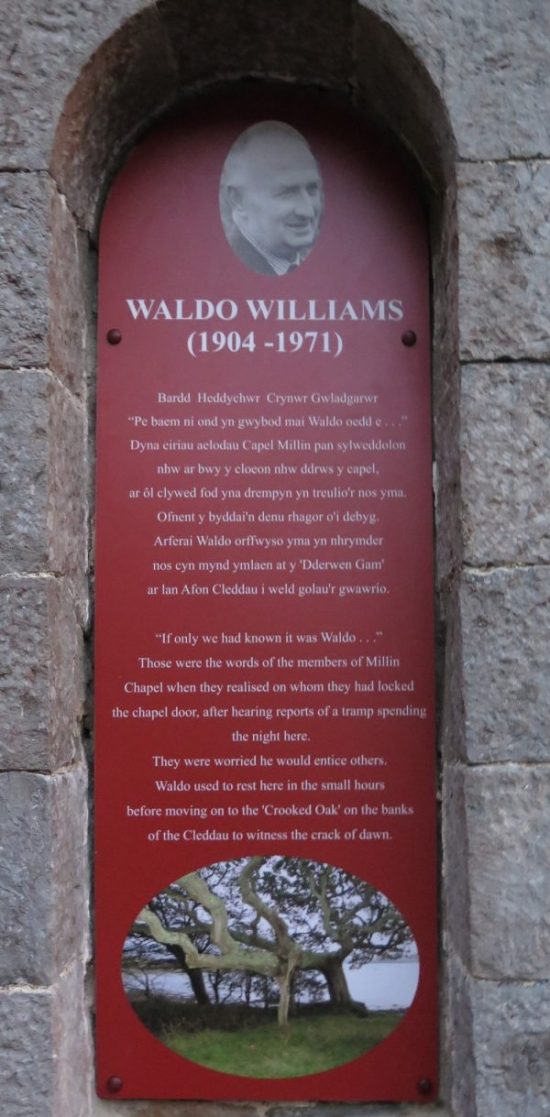
A profound and comprehensive lecture was delivered by Guto Prys ap Gwynfor at Millin Chapel, near Haverfordwest, on Friday, September 28 placing Waldo very much in the pantheon of history’s rightful nonconformists. He listed him in the tradition of the Roman occupation heretics as one who would not bow to the wishes of any state if that clashed with his conscience.
Guto insisted the line ‘Gwyn eu byd yr oes a’u clyw’ (Bless the lives of those who hear them) from the poem ‘Y Tangnefeddwyr’ (The Peacemakers) referred not only to Waldo’s parents but to all pacifists along the centuries, – and many of those would be former soldiers. He referred to the ode ‘Tŷ Ddewi’ with its constant references to those who turned their back on military life and became peacemakers.

“Waldo was a disciple of Jesus of Nazareth” he said “ and he believed in the everlasting worth of every individual and that to be a slave to the state was akin to being a soldier in his outlook. He relished brotherhood.”
The lecturer suggested tongue in cheek that the poet who was raised in Mynachlog-ddu and Llandysilio had been named after a 12century heretic named Peter Waldo associated with a Christian sect called the Waldensians. A statute of him can be seen in Worms in Germany.
The Annual Cymdeithas Waldo Lecture was held at Millin Chapel because it was Waldo’s habit to seek refuge within the building in the early hours before walking, or cycling, towards the Crooked Oak on the Cleddau riverbank nearby to experience the early morning. That habit ceased when the members took the view a tramp was taking advantage of the building and so they locked the door. Their later response was “If only we had known it was Waldo”!
A red plaque was unveiled by Cerwyn Davies on behalf of Cymdeithas Waldo in one of the outside windows of the Methodist chapel to denote the pacifist’s connection with the place. Rev Eirian Wyn Lewis, Cymdeithas Waldo chairman, presided and two of Waldo’s poems, ‘Cwm Berllan’ and ‘Dderwen Gam’, were read by his nephew, Teifryn Williams.
